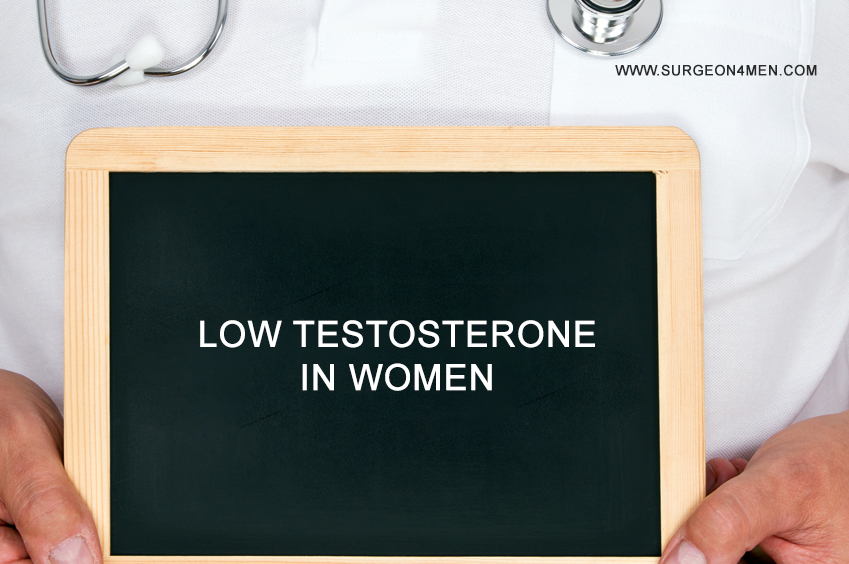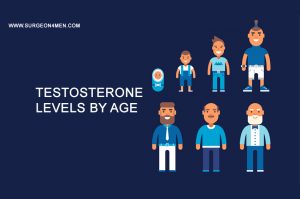Low Testosterone In Women
Low testosterone has always believed to be a male hormonal disorder but the reality is that this “male sex hormone” is also found in women. Contrary to popular belief, normal testosterone levels are required for smooth functioning of certain systems in females such as high energy levels, healthy and functional mood and satisfactory sexual drive. Loss of sexual drive in women is often linked with low testosterone levels and therefore testosterone replacement therapy was suggested as the most preferred solution by some pharmaceutical companies, thanks to the marketing tactics! But the truth remains that although normal testosterone levels are required by females, the concentration needed is much lower when compared to men.
Unlike men, women don’t face drastic side effects of low serum T levels such as, disturbances in the sleeping pattern, low libido, depression and lack of energy.
What Should You Know About Testosterone?
Testosterone is an androgen that is secreted by the human adrenal glands and ovaries. Under normal circumstances, adrenal glands can produce enough testosterone to fulfill a woman’s metabolic needs which means, they won’t require hormone replacement therapy even if their ovaries are removed. Even the birth control pills contain testosterone derivatives, such as “progesterone!” Therefore, low testosterone levels in females is not always a worrisome condition warranting emergent therapy.
Functions Of Testosterone In Women
As mentioned earlier, testosterone performs some key functions in the human body. This includes:
- Maintenance Of Sexual Drive:
A significant drop in the serum hormonal levels after menopause can make a woman less interested in sex. Though testosterone patches can accelerate the sexual drive in some women but, treatment of low libido requires much more than just testosterone replacement.
Balanced serum levels of testosterone can keep your bones in good shape. It is noteworthy that deficiency as well as excess of testosterone can be equally harmful for your bones. After menopause, bone health can be maintained by testosterone replacement therapy in some women.
- Pain Management:
Women who suffers from hormonal dysfunction (testosterone as well as estrogen) are less capable of managing their pain responses, says a research published in the Journal of Pain.
- Prevention Of Cognitive Fatigue:
Unbalanced hormones can cause changes in the cognitive health; thereby leading to problems like cognitive fatigue. With testosterone replacement, such cognitive and intellectual complaints can be prevented.
Why Balanced Testosterone Levels Are Important?
Excessive testosterone can lead to numerous side effects including, but not limited to:
- Male pattern baldness
- Male pattern hair growth (excessive facial hairs)
- Disturbed menstrual cycle
- Some permanent effects such as deep voice and bizarrely enlarged clitoris (clitoromegaly)
Prolong and continuous use of testosterone can also disturb lipid profile and aggravate your risk of heart diseases. Too much testosterone can also induce poly cystic ovary syndrome.
Testosterone therapy works differently in all women. In other words, not all females require therapy and even if they do, very small doses can be given for fruitful results. The doses are titrated according to the symptoms. If women start to experience side effects; testosterone therapy should be immediately terminated or doses should be adjusted.
Even if low libido is due to low T, do not opt for over the counter testosterone supplements or drugs without speaking to your doctor, as the side effects can be horrific! Always consult a specialist and discuss your problems in detail so appropriate treatment can be devised for you.
References
- Guerrieri, G. M., Martinez, P. E., Klug, S. P., Haq, N. A., Vanderhoof, V. H., Koziol, D. E., … & Schmidt, P. J. (2014). Effects of Physiologic Testosterone Replacement on Quality of Life, Self-Esteem, and Mood in Women with Primary Ovarian Insufficiency. Menopause (New York, NY), 21(9), 952.
- Huang, G., Basaria, S., Travison, T. G., Ho, M. H., Davda, M., Mazer, N. A., … & Ursino, M. (2014). Testosterone Dose-Response Relationships in Hysterectomized Women with and without Oophorectomy: Effects on Sexual Function, Body Composition, Muscle Performance and Physical Function in a Randomized Trial. Menopause (New York, NY), 21(6), 612.


